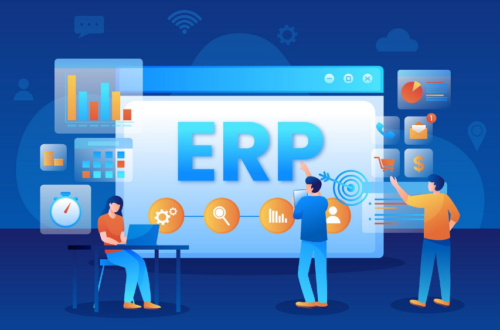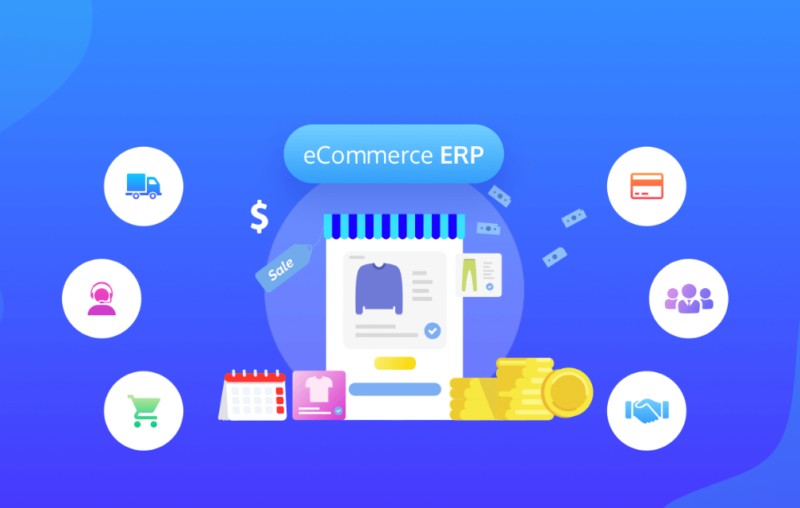Introduction to ERP Software Providers : In today’s fast-paced business landscape, staying competitive requires efficient management of resources, streamlined processes, and real-time insights.
This is where Enterprise Resource Planning (ERP) software comes into play, and ERP software providers play a crucial role in delivering these solutions.
Understanding ERP Software
What is ERP Software?
ERP software is a suite of integrated applications designed to manage core business processes such as finance, human resources, inventory, supply chain, and more. It provides a centralized database and enables seamless communication across departments, improving efficiency and decision-making.
Importance of ERP Software Providers
ERP software providers offer expertise in implementing, customizing, and supporting ERP solutions, ensuring that businesses harness the full potential of these systems to drive growth and innovation.
Key Features of ERP Software
ERP software offers a range of features essential for modern businesses:
Integration Capabilities: ERP systems integrate various functions and departments within an organization, eliminating data silos and facilitating smooth communication.
Scalability: ERP software should be able to scale with the growth of the business, accommodating increased transaction volumes and expanding user bases.
Customization Options: Tailoring ERP solutions to specific business needs ensures optimal performance and user satisfaction.
Types of ERP Software Providers
ERP software providers come in different forms to cater to diverse business requirements:
Industry-specific Providers: These providers specialize in developing ERP solutions tailored to specific industries such as manufacturing, healthcare, retail, and finance.
Open Source Providers: Open source ERP software offers flexibility and cost-effectiveness, allowing businesses to modify and customize the code according to their needs.
Cloud-based Providers: Cloud-based ERP solutions offer accessibility, scalability, and reduced infrastructure costs, making them popular among small and medium-sized enterprises (SMEs).
Factors to Consider When Choosing an ERP Software Provider
Selecting the right ERP software provider is crucial for the success of an implementation project. Key factors to consider include:
Business Needs Assessment: Understanding specific business requirements and objectives ensures that the chosen ERP solution aligns with organizational goals.
Budget Constraints: Evaluating total cost of ownership (TCO), including implementation, licensing, and maintenance costs, helps in selecting a provider that offers the best value for money.
Scalability and Growth Potential: Choosing a provider that can support future growth and expansion ensures long-term viability of the ERP investment.
Top ERP Software Providers
Several established players dominate the ERP software market:
SAP: SAP offers a comprehensive suite of ERP solutions tailored to various industries, known for its robust functionality and scalability.
Oracle: Oracle’s ERP software provides a broad range of modules for finance, procurement, manufacturing, and more, suitable for large enterprises.
Microsoft Dynamics: Microsoft Dynamics offers flexible ERP solutions designed to streamline operations, improve productivity, and drive digital transformation.
NetSuite: NetSuite’s cloud-based ERP platform is popular among SMEs for its ease of deployment, scalability, and real-time visibility into business processes.
Benefits of Using ERP Software Providers
Implementing ERP software offers numerous benefits for businesses:
Streamlined Business Processes: ERP systems automate repetitive tasks, eliminate manual data entry, and standardize workflows, resulting in increased efficiency and productivity.
Improved Efficiency: Centralized data management and real-time reporting enable faster decision-making and better resource allocation.
Enhanced Data Security: ERP software providers implement robust security measures to protect sensitive business information from unauthorized access and cyber threats.
Challenges of Implementing ERP Software
While ERP systems offer significant advantages, implementation projects often face challenges:
Cost Overruns: Budget overruns are common due to underestimation of implementation costs, customization expenses, and ongoing maintenance fees.
Resistance to Change: Employees may resist adopting new processes and technologies, leading to delays and decreased productivity during implementation.
Data Migration Issues: Migrating data from legacy systems to the new ERP platform can be complex and time-consuming, potentially resulting in data loss or inconsistencies.
Best Practices for Implementing ERP Software
Successful implementation of ERP software requires careful planning and execution:
Executive Sponsorship: Securing buy-in from senior management and appointing an executive sponsor helps drive organizational change and overcome resistance.
Comprehensive Training: Providing thorough training and support to end-users ensures smooth adoption of the new ERP system and maximizes ROI.
Continuous Evaluation and Improvement: Regular monitoring and evaluation of system performance enable continuous optimization and adaptation to evolving business needs.
Future Trends in ERP Software
Emerging technologies are reshaping the future of ERP software:
Artificial Intelligence Integration: AI-powered analytics and predictive capabilities enhance decision-making and enable proactive problem-solving.
Blockchain Technology: Blockchain ensures data integrity, transparency, and traceability, particularly in industries with complex supply chains and regulatory requirements.
Internet of Things (IoT) Integration: IoT sensors and devices provide real-time data from physical assets, enabling proactive maintenance and optimization of resources.
Case Studies: Successful Implementation of ERP Software
Real-world examples demonstrate the benefits of ERP software:
Company A: By implementing SAP ERP, Company A streamlined its manufacturing processes, reduced lead times, and achieved significant cost savings.
Company B: NetSuite’s cloud-based ERP solution helped Company B improve inventory management, optimize supply chain operations, and enhance customer satisfaction.
Conclusion
ERP software providers play a vital role in helping businesses leverage technology to streamline operations, improve efficiency, and drive growth. By understanding the key features, types, selection criteria, benefits, challenges, and best practices associated with ERP software, organizations can make informed decisions and maximize the value of their investments.
FAQs (Frequently Asked Questions)
What does ERP stand for?
ERP stands for Enterprise Resource Planning, which refers to integrated software systems used to manage core business functions such as finance, human resources, and supply chain management.
How do ERP software providers differ from one another?
ERP software providers differ in terms of industry focus, deployment options, customization capabilities, pricing models, and levels of support and service.
What are the advantages of using ERP software?
Some benefits of using ERP software include improved efficiency, streamlined processes, better decision-making, enhanced data security, and scalability to support business growth.
How can a business determine which ERP software provider is best for its needs?
Businesses should conduct a thorough needs assessment, evaluate available options based on factors such as functionality, scalability, cost, and industry expertise, and consider conducting demonstrations and seeking references from existing customers.
What are some common challenges faced during the implementation of ERP software?
Common challenges during ERP implementation include cost overruns, resistance to change, data migration issues, lack of executive sponsorship, inadequate training, and failure to align technology with business goals.


